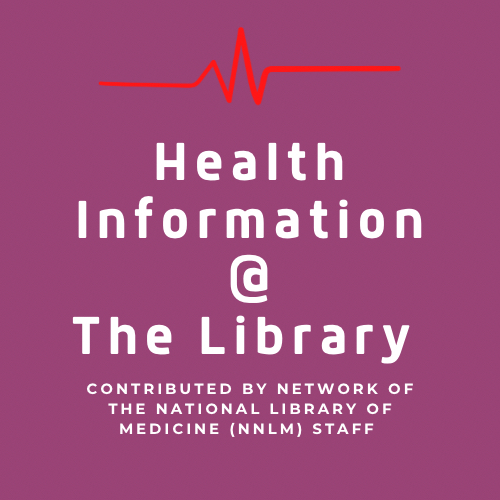What is a Consumer Health Information Specialization (CHIS) and Why Do You Need It?

It’s estimated that around 60% of total reference inquiries at public libraries are health information related (Wood et al., 2000), but studies have shown that many library professionals don’t feel adequately prepared to help patrons with the health and social issues most affecting them (Whiteman, et al., 2018). This is where the Consumer Health Information Specialization (CHIS) comes in. CHIS is a professional development program through the Medical Library Association (MLA) that can help you gain skills in areas such as understanding your community, finding and evaluating health information resources, and improving health literacy. NNLM started supporting public library staff to achieve the MLA CHIS in 2018. After implementing that initial sponsorship program, NNLM found that more than 80% of participants reported an increase in core consumer health competencies after obtaining CHIS (Kiscaden, et al., 2020).
Jamia and I were fortunate enough to present as part of a panel, One in a Million: Innovative Health Programs with the All of Us Research Program, this last April at the PLA Conference in Columbus, OH. A lot of you stuck around after the presentation with questions, specifically about CHIS certification, so we thought we’d continue that conversation here and spread the word to those of you who weren’t able to attend our session.
Jen: Hi Jamia, let’s start with an explanation of what getting your CHIS certification looks like. When I first heard about it in library school, I thought it was a course that someone could take, but that’s not completely accurate, right?
Jamia: Yes, people can take an LIS course that has been CHIS approved to obtain the certification. For people not in an LIS program, you obtain CHIS by choosing several classes from various offerings. It requires 12 MLA continuing education, or CE, credits, and you can obtain those through MLA or NNLM.
Jen: Can you give me some examples of what sort of classes are available to take as you work toward a CHIS certification?
Jamia: Of course—just a few examples are “CHIS On Demand,” “Telehealth 101,” and “Beyond the Binary.” For each level of CHIS you need 12 CE credits. For a more comprehensive list of classes visit: NNLM.gov
Jen: How many levels are there?
Jamia: CHIS has two levels that you can achieve, CHIS I, and CHIS II.
Jen: Once you achieve a level of specialization, how long is that good for?
Jamia: It is good for three years. When you renew your CHIS, you only need eight CE credits. We like to encourage people who have CHIS Level I to get 12 credits since four more CE credits make it easy to move to CHIS Level II.
Jen: Is there a cost?
Jamia: Through NNLM our classes are free. To get the specialization through MLA it costs $99 for MLA members, and $129 for non-members, but good news! NNLM will cover the cost if you apply for sponsorship. More information on sponsorship here
Jen: I shared that one of our post PLA session surveys had a comment about how interested this participant was in CHIS, and that they had never heard of it before. What were some of the other questions you got after the session?
Jamia: The questions were varied, mostly about the specialization itself—what it takes to get it, the benefits of it. Someone had a question about telehealth, which NNLM has a great course about that counts toward achieving CHIS.
Jen: At base, the benefit of obtaining CHIS is that it improves library staff’s ability to confidently find and communicate health information, right? And that can have a ripple effect within a library. One of the things you talked about during the PLA presentation was a pilot for a “Train the Trainer” CHIS program–can you talk a little more about that?
Jamia: Yes, we completed the pilot in late April, and are in the process of evaluating and deciding how to proceed. Librarians committed 17 hours to participate in this pilot, and I wasn’t a part of the focus group at the end. The point of that was so that participants could feel comfortable giving real feedback. That feedback is still being evaluated, and the hope is to incorporate it into the program going forward. But the whole point of this idea is that once someone has CHIS, they could become advocates or trainers for others to achieve CHIS. They could train people in their own libraries, or outside their libraries. This could lead to helping people get their CHIS or motivating them to renew it.
Jen: That’s amazing. You said this is still in the works, but any recommendations for people interested in this path?
Jamia: For now, we encourage people to get their CHIS level I at least, and then reach out to their regional NNLM libraries to find out more about being a trainer. In the end, we really hope that this expands library staff’s knowledge of the cool trainings that are available through NNLM, and to further support them with providing consumer health resources in their community.
For more information about CHIS through NNLM visit the NNLM’s Consumer Health Information Specialization page
References
Wood, F.B., Lyon, B., Schell, M.B., Kitendaugh, P., Cid, V.H., & Siegel, E.R. (2000). Public library consumer health information pilot project: Results of a National Library of Medicine evaluation. Bulletin of the Medical Library Association, 88 (4), 314-322.
Whiteman, E. D., Dupuis, R., Morgan, A. U., D’Alonzo, B., Epstein, C., Klusaritz, H., & Cannuscio, C. C. (2018). Peer reviewed: Public libraries as partners for health. Preventing chronic disease, 15.
Kiscaden, E., Spatz, M., Wolfe, S. M., Knapp, M., & Lake, E. (2021). Impact of a consumer health information specialization (CHIS) sponsorship program on the ability of public library staff to provide consumer health information. Journal of the Medical Library Association: JMLA, 109(2), 267.
Tags: consumerhealthinformation, healthinformationservicesatthelibrary, NNLM









